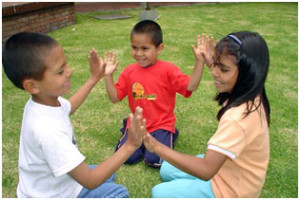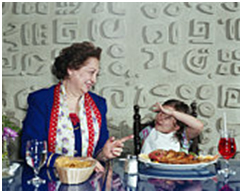 You know that positive thinking has the power to make your plans successful and make your dreams come true – thinking positively and visualizing success is a very real phenomenon. But did you stop to consider that the opposite is also true: negative thinking creates a cycle that produces negative outcomes. When you think and speak negatively a self-fulfilling result is almost certain to result.
You know that positive thinking has the power to make your plans successful and make your dreams come true – thinking positively and visualizing success is a very real phenomenon. But did you stop to consider that the opposite is also true: negative thinking creates a cycle that produces negative outcomes. When you think and speak negatively a self-fulfilling result is almost certain to result.
My mother would routinely accuse my teenage sister and me of all kinds of wrongs that we were wholly innocent of at the time. But these negative comments put into our heads, “why not do the deed, since we are already being accused of being guilty anyway?” This negative thinking cycle becomes a bad habit that self perpetuates and like most habits is very hard to break. Even recognizing it as a problem takes some effort since we hate to self-criticize.
Positive thinking is more than just empty praise of a child. Saying “you’re always such a good boy” is different from internally thinking and really believing “I know Johnny will do the right thing”. But what you say externally does send a strong message to the child, so watch your words.
“Be good for mommy and daddy while we are out” implies that you were expecting bad behavior and the child needs a reminder to be good, which is negative thinking. Better to expect and express your thoughts in a positive way, “We know you’ll have fun and enjoy your time with the sitter while mommy and daddy are out”.
Another advantage of positive thinking is that it helps to make distasteful tasks seem painless, because you have framed them as positive instead of negative. “Your room is such a mess! – it must be cleaned by the end of today or no allowance this week for you!” has the child grumbling and groaning throughout the unpleasant task. Instead, a positive frame can make a big difference in perspective: “There are a few things that need attention in your room… – once you finish them up, there should be time to do that weekend activity we planned on”. The goal is the same – to have the room cleaned by the end of the day- but the secondary goal is to make the recurring responsibility not feel so daunting that it becomes oppressive.
One way to cultivate a positive outlook is to make sure to do at least one enjoyable thing every day. A day without mental sunshine is a dreary day indeed.
COMMUNICATION TAKE AWAY: Making time to do the things you enjoy can affect your whole outlook. Positive thinking is not only a good habit but a necessary one for optimal mental health. Like all habits, positive thinking that can be cultivated with effort, if needed, to become automatic, and negative thinking can be erased, with self-discipline. Children that develop a positive thinking habit receive a lifelong gift from their parents.









